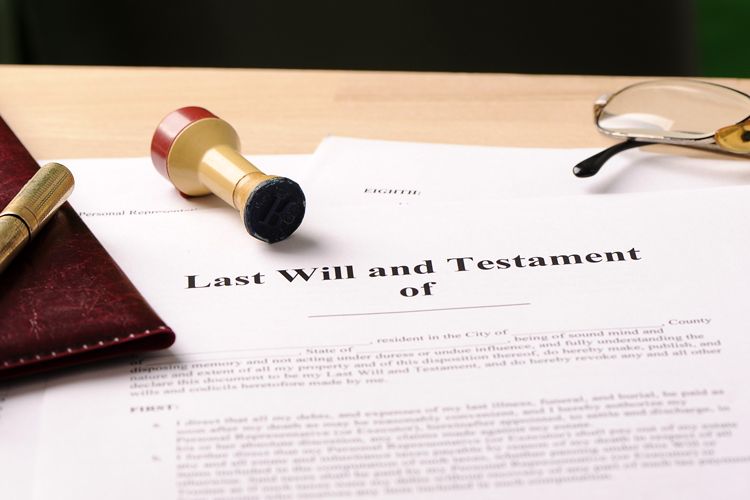Not All Responsible People Have A Will. Some Are Just Lazy. Or Cheap.
Here’s how to motivate your Will-less clients to protect their family and assets.

You’d think that a person with a family, home, and investment portfolio would automatically have a Will. According to a Rocket Lawyer survey, only 58 percent of baby boomers have an official Last Will and Testament, and half of the respondents with children didn’t have anything in place.
How can we reverse this trend and get people planning properly? Behold, a bunch of helpful tips and motivation tactics.
Reasons People Don’t Create A Will & How To Motivate Them
The Lazy: 34 percent blamed procrastination. This makes the most sense. Who wants to take time away from their hobbies or relaxing in front of the TV to complete a formal document that’s executed upon their death? Plus, choosing a guardian for their young kids can be a very difficult decision to make.
Proper Motivation: Explain to this person how it won’t take nearly as long as they think it will. Give them our Writing A Will Checklist to gather up the required information, have them block out a few hours, and get it done.
Wills are boilerplate for the majority of adults, allowing your client to do it online, possibly even for free or a few hundred dollars. If they have a complex estate, have them contact an estate attorney. If they don’t know one, perhaps you can suggest someone you trust. Make a note to follow up and don’t stop until they have a Will. Once it’s done they’ll be thankful you gave them the kick they needed.
The Cheap: 21 percent thought it’s too expensive.
Proper Motivation: The word “attorney” conjures up images of dollars flying out of your bank account. This is mostly because of litigation or complicated legal matters that require a bunch of billable hours. A Will is neither of those things. Explain to this person, like we mentioned above, they can go online and do a Will either for free or a minimal expense compared to the cost it is to die without a Will, especially if they haven’t named guardians for children. Then guardianship will be decided by the courts and things can get extremely complicated, especially if there’s any family drama. (And there’s usually some sort of drama when money or kids are involved.)
Complicated estates requires more finesse so an attorney might be required. If this is the case, and your client has an estate that’s complex enough to require an attorney, then they can afford it. Complaining about the expense is just an excuse to procrastinate. Regardless, tell them to get a basic Will in place, mainly for guardianship and general asset allocation, so there’s something official and legal in case of an emergency.
The Non-Believers: 22 percent said they don’t need a Will. These people most likely think they don’t have a valuable enough estate or their family will peacefully divide up all the money and assets evenly. Perhaps while having a tea party. In Fantasyland.
Proper Motivation: Start asking this person basic questions. Do they own a home? A car? Two cars? Bank accounts? Jewlery? If the answer to any of these is “yes,” they have an estate worth protecting with a Will. Then repeat some of the tips mentioned above.
If the client still feels like they don’t need to do a Will, have them write a short letter explaining why. It won’t be legal, but at least it’ll let the family know why they believed a Will wasn’t necessary. It was also keep this person’s family from frantically searching for something that doesn’t exist.
Keep It Safe… But Not Too Hard To Locate Or Obtain
One of the results from the survey that made us a little nervous was that 41 percent kept their Will in a safe deposit box. It’s a nice secure place, but unless those people told their family and/or executor the location and also granted access along with a key, this could pose a problem. Banks don’t grant access to a safe deposit box just because someone asks. This requires a court order, which takes time and can be an unpleasant hassle during a very difficult moment in their lives.
Make it easier by either storing it somewhere safely at home (like the 48 percent of people cited in the survey) or with an attorney (31 percent). [Related: The Safest And Most Practical Places To Store Your Will]
Questions To Consider

Here at Everplans we’re interested in capturing real voices and sound advice from experienced experts so we can help and educate other professionals and our platform users. If you can offer any insight into the following areas, don’t hesitate to get in touch with us:
- Do you think it’s your place as an advisor to help a client get a Will?
- Do you offer any tips to clients as to how they should account for their assets in a Will? If so, please share them with us.
- What’s the biggest mistake a client can make when creating a Will?
[Source: RocketLawyer.com (pdf)]
- Trusts Cheat SheetTrust us when we say this is as basic as we can make Trusts.Read more
- All You Need To Know About Advance DirectivesWhen you can’t make health decisions for yourself, this is the north star...Read more
- How To Create A Do Not Resuscitate Order (DNR)A DNR is a medical order that states you don't want cardiopulmonary...Read more
- How Organ Donation WorksIf the person who died was a registered organ donor, measures will be taken...Read more



